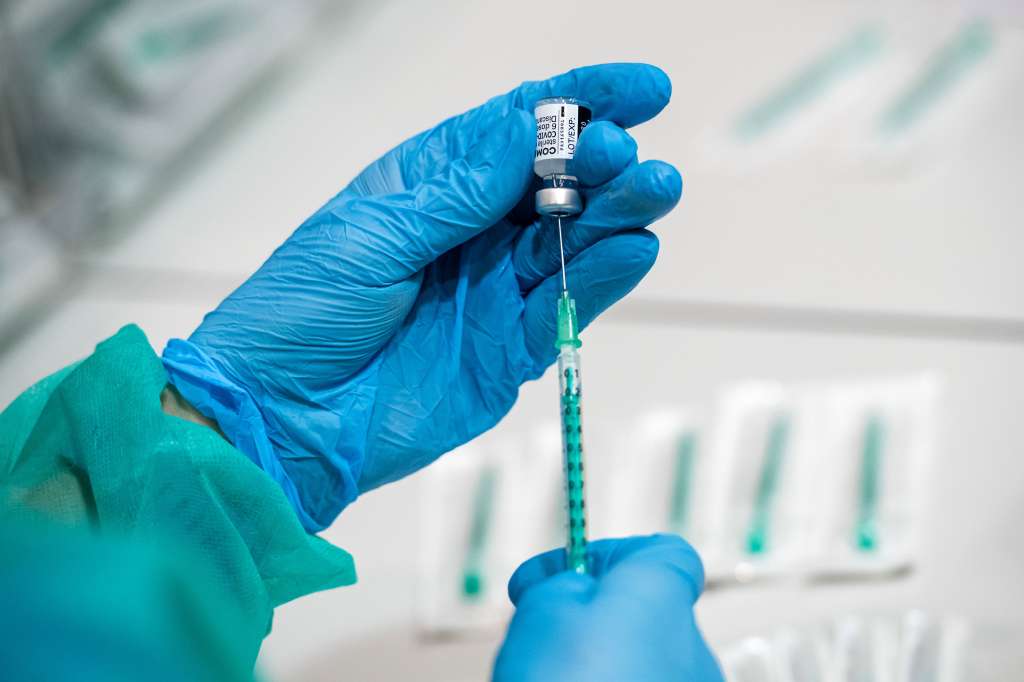(CNN) — About 5,800 people who have been vaccinated against coronavirus have become infected anyway, the US Centers for Disease Control and Prevention tells CNN.
Some became seriously ill and 74 people died, the CDC said. It said 396 — 7% — of those who got infected after they were vaccinated required hospitalization.
This is the CDC’s first public accounting of breakthrough cases, and the agency is searching for patterns based on patient age and gender, location, type of vaccine, variants and other factors.
“So far, about 5,800 breakthrough cases have been reported to CDC. To date, no unexpected patterns have been identified in case demographics or vaccine characteristics,” the CDC told CNN via email.
About 77 million people in the US are fully vaccinated against coronavirus, according to a CNN analysis of CDC data. The CDC’s reports on breakthrough cases will lag day-to-day reports of vaccines given, so many, if not most, of those breakthrough cases will have happened weeks ago.
Nonetheless, the total represents a very small percentage of those who have been vaccinated.
Breakthrough cases are expected. The vaccines are not 100% effective in preventing infections and as tens of millions of people are vaccinated, more and more such cases will be reported.
Pfizer/BioNTech’s vaccine was 95% effective in preventing symptomatic disease in clinical trials, and earlier this month the companies said real-life data in the US shows the vaccine is more than 91% effective against disease with any symptoms for six months. Moderna’s vaccine was 94% effective in preventing symptomatic illness in trials, and 90% effective in real life use. Johnson & Johnson’s vaccine was 66% overall globally in trials, and 72% effective at preventing disease in the US.
CDC will be looking for clues about who is most prone to become infected despite having been vaccinated.
“Vaccine breakthrough infections were reported among all people of all ages eligible for vaccination. However, a little over 40% of the infections were in people 60 or more years of age,” the CDC said.
Most, 65%, were female and 29% of the so-called breakthrough infections were asymptomatic. “CDC is monitoring reported cases for clustering by patient demographics, geographic location, time since vaccination, vaccine type or lot number, and SARS-CoV-2 lineage,” the CDC said.
Plus, samples from cases will be tested to see how many are caused by variants and if so, which ones.
“CDC has developed a national COVID-19 vaccine breakthrough database where state health department investigators can currently enter, store, and manage data for cases in their jurisdiction,” the CDC said.
“Vaccine breakthrough infections make up a small percentage of people who are fully vaccinated. CDC recommends that all eligible people get a COVID-19 vaccine as soon as one is available to them. CDC also continues to recommend people who have been fully vaccinated should keep taking precautions in public places, like wearing a mask, staying at least six feet apart from others, avoiding crowds and poorly ventilated spaces, and washing their hands often.”
Outside experts agreed.
The likelihood of these “very rare” infections depends on how much virus is circulating within a community, Dr. Kawsar Talaat, an infectious disease physician and assistant professor at Johns Hopkins Bloomberg School of Public Health, told CNN.
“That’s the whole point of getting to herd immunity,” Talaat said. “Because once we get to a point where enough people in the community are vaccinated, then if somebody develops Covid in that community, the people around them are protected and it’s much harder for that person to spread the virus to somebody else, and therefore the transmission stops.”
Less transmission means fewer breakthrough cases, said Dr. Carlos del Rio, executive associate dean at Emory University School of Medicine.
“There is currently a lot of transmission in many parts of the country. Vaccines will help decrease that,” del Rio said. “Get vaccinated as soon as you can and help control this pandemic.”
The-CNN-Wire™ & © 2024 Cable News Network, Inc., a Time Warner Company. All rights reserved.

